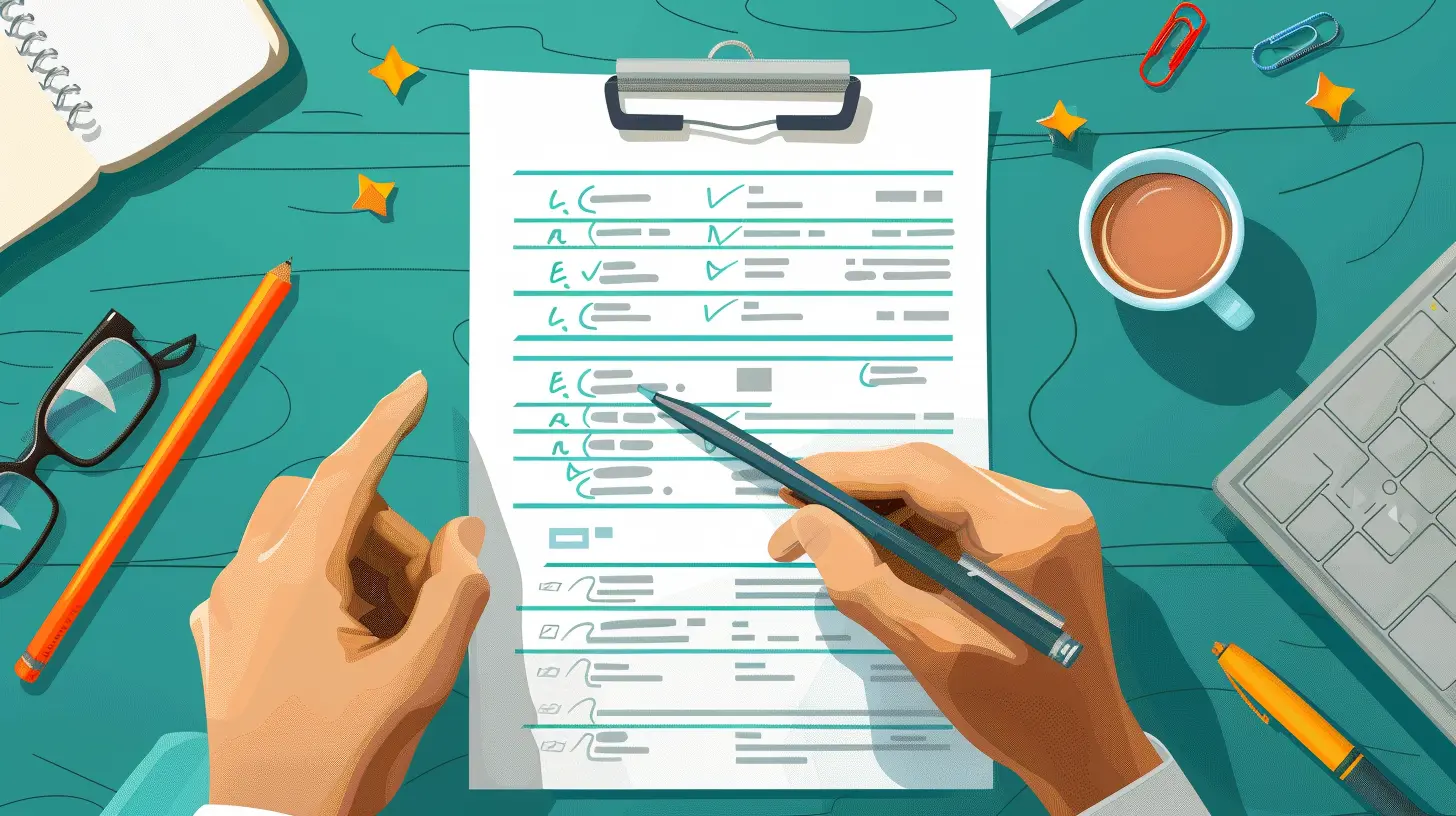How to Excel in Online Exams and Assessments
10 November 2025
Online exams and assessments are becoming more common in today's digital world. Whether you're a student, a professional taking a certification, or someone pursuing an online course, acing these tests requires proper strategy and preparation. The good news? With the right approach, you can master online exams like a pro.
This guide will walk you through essential tips and strategies to help you excel in online exams. Let's dive in! 
1. Understand the Exam Format
Before jumping into endless hours of studying, take some time to understand the structure of the exam. Different tests come with different formats—multiple-choice questions, essays, open-book exams, or timed quizzes.- Check the exam guidelines – This includes time limits, question types, and the number of questions.
- Know if it’s open-book or closed-book – This will determine how you prepare.
- Understand the scoring system – Knowing how marks are allocated can help you prioritize questions strategically.
If possible, try to get sample questions or past exams to get a feel for what to expect. 
2. Create a Study Plan
Cramming the night before an exam rarely works. Instead, plan your study sessions well in advance. A structured approach will help you retain information better and reduce last-minute panic.How to Build an Effective Study Plan:
- Start early – The earlier you begin, the less stressful it will be.- Break topics into smaller sections – Studying in chunks is more effective than trying to absorb everything at once.
- Use a study timetable – Allocate specific time slots for each topic to stay organized.
- Test yourself regularly – Practice quizzes or mock exams can help you identify weak areas.
A well-organized plan can make a huge difference in your performance. 
3. Optimize Your Study Environment
Your study environment plays a crucial role in your ability to focus. A cluttered and noisy space can negatively impact concentration.How to Create an Ideal Study Setup:
- Find a quiet space – Noise and distractions can break your focus.- Use good lighting – Poor lighting can strain your eyes and cause fatigue.
- Keep everything you need handy – Your notes, water, and stationery should be within reach.
- Turn off distractions – Put your phone on silent mode or use apps that block social media.
By optimizing your study environment, you enhance your ability to absorb and retain information. 
4. Practice Time Management
Most online exams are time-bound, making time management a crucial skill.Tips for Managing Time Effectively:
- Practice with a timer – Simulating exam conditions helps you get used to time constraints.- Don’t spend too long on one question – If you're stuck, move on and come back later.
- Use the elimination method – For multiple-choice questions, narrow down options to save time.
- Leave some time for review – If possible, revisit questions to correct any mistakes.
Managing time smartly can prevent last-minute rushes and boost confidence during the exam.
5. Master Note-Taking Techniques
Good notes make revision easier and more effective. Instead of passively reading textbooks, engage in active note-taking.Effective Note-Taking Strategies:
- Use bullet points – This makes information easier to scan.- Summarize in your own words – It improves retention.
- Highlight key points – It helps in quick recall before the exam.
- Use mind maps – Visualizing information can make complex topics more understandable.
Well-organized notes can serve as a quick reference guide during last-minute revision.
6. Leverage Online Resources
The internet is packed with useful learning resources that can help you prepare better.Best Online Learning Tools:
- YouTube tutorials – Great for visual learners.- Educational apps – Apps like Quizlet, Anki, and Khan Academy can reinforce learning.
- Online practice tests – Websites like Coursera, edX, and Khan Academy often provide mock exams.
- Discussion forums – Joining online groups can help clarify doubts and exchange knowledge.
Using diverse resources will help you grasp concepts more effectively.
7. Prepare for Technical Issues
Nothing is more frustrating than facing technical problems during an online exam. Stay prepared to avoid unnecessary stress.Ways to Avoid Technical Glitches:
- Check your internet connection – A stable internet connection is crucial.- Test your equipment – Ensure your laptop, webcam, and microphone are working.
- Keep a backup device – If possible, have an alternative device ready.
- Log in early – Give yourself at least 15 minutes before the exam starts.
Being tech-ready ensures you don't waste valuable time dealing with preventable issues.
8. Take Care of Your Well-Being
Your physical and mental well-being plays a major role in exam success.Health Tips for Exam Success:
- Get enough sleep – A well-rested brain performs better.- Eat brain-boosting foods – Include foods rich in omega-3, proteins, and antioxidants.
- Stay hydrated – Dehydration can affect concentration.
- Take short breaks – Avoid burnout by resting between study sessions.
A healthy body and mind will help you stay focused and perform at your best.
9. Stay Calm and Confident
Exam anxiety can negatively impact your performance. Staying calm is key to performing well.How to Manage Exam Stress:
- Practice deep breathing – Helps in calming nerves.- Think positive – A confident mindset leads to better results.
- Avoid last-minute cramming – It increases stress and confusion.
- Trust your preparation – If you've studied well, you’re already set for success.
A confident and relaxed mindset can help you think clearly during the exam.
10. Review Your Performance
Once the exam is over, take some time to reflect on your performance.Steps to Improve for the Future:
- Analyze mistakes – Identify areas where you can improve.- Seek feedback – If possible, discuss your performance with teachers or peers.
- Refine your study techniques – Adjust your strategies based on what worked and what didn’t.
Continuous improvement ensures better results in future exams.
Conclusion
Online exams might seem daunting at first, but with the right approach, they become much easier to tackle. From understanding the test format to managing time effectively, taking care of your health, and staying calm under pressure—each step plays a vital role.The key is to plan ahead, stay disciplined, and approach the exam with confidence. Follow these strategies, and you’ll be well on your way to acing your next online assessment!
all images in this post were generated using AI tools
Category:
Online LearningAuthor:

Zoe McKay
Discussion
rate this article
1 comments
Adam Ramos
This article offers invaluable strategies for mastering online exams, emphasizing time management, effective study techniques, and the importance of a distraction-free environment. Implementing these tips will undoubtedly enhance performance and boost confidence in assessments.
November 12, 2025 at 4:56 AM

Zoe McKay
Thank you for your feedback! I'm glad you found the strategies helpful for mastering online exams. Wishing you the best in your studies!


